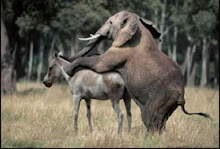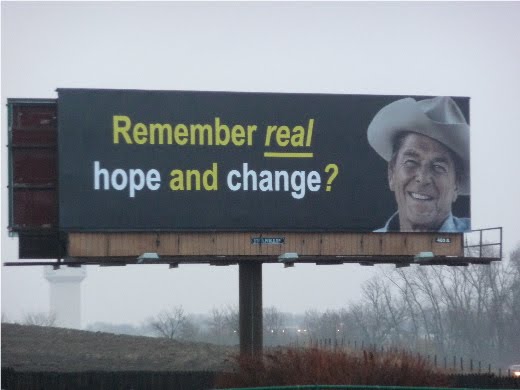Senate Democrats, Republicans to be targeted in round 2 of recalls
By Jason Stein and Patrick Marley of the Journal Sentinel
Updated: Oct. 13, 2011
Election 2011
Madison - Alongside an attempted recall of Gov. Scott Walker, both Republicans and Democrats will likely seek in coming weeks to recall state senators in a contest for control of that legislative house.
Following this summer's recall elections, the Senate is controlled by Republicans by a thin 17-16 margin. Next month, a new set of senators will be eligible for recall, opening the possibility Democrats could flip the chamber or Republicans could add to their majority.
A new round of recalls would ensure legislative proceedings remain politically charged and would likely lead to legal wrangling. Republicans in charge of the two houses this year drew new legislative maps for the regular fall 2012 elections that favor Republicans, and at issue is whether the old or new maps would be in effect for any recalls before then.
State Democratic Party Chairman Mike Tate said he expected his party to help run recall efforts against GOP senators along with its attempted recall of Walker announced Monday. He called capturing control of the Senate at least for a time a "very real possibility."
"It would be irresponsible of the party to not jump on that opportunity," Tate said.
The wave of recalls this summer, unprecedented in the state's and nation's history, resulted from a fight over the GOP governor's legislation repealing most union bargaining for most public employees in Wisconsin. Others active in Democratic politics said they expected another spate of recalls, as did those in Republican circles.
Asked about trying to recall Democratic senators, Senate Majority Leader Scott Fitzgerald (R-Juneau) said, "I haven't ruled it out, that's for sure."
State elections officials are still researching how much these possible recalls might cost - it would partly depend on whether the different possible elections are held at the same time or separately. The nine Senate recall elections held earlier this year cost the state and local governments an estimated $2.1 million.
Under state law, elected officials can be recalled from office after they have served a year of their term in office. That made all the members of the Assembly and half the senators immune from recall attempts this year because they were elected in November 2010 and sworn-in in January 2011.
Eleven Republicans and seven Democrats become eligible for recall in November. In addition two more Republican and four Democrats could face a second recall attempts after opponents failed to collect enough signatures earlier this year to force recall elections.
Senators who have already survived a recall election will serve out their terms.
Fitzgerald said he would consider trying to recall nearly all of the Democrats who are eligible. He called Sen. Kathleen Vinehout (D-Alma) the most vulnerable and said Sen. Julie Lassa (D-Stevens Point) was a likely target.
Republicans tried to recall Lassa this year but did not garner enough signatures. Vinehout said she saw an attempt to recall her as nearly inevitable.
"There's going to be retaliation, and I'm going to be on the top of the list," Vinehout said.
Fitzgerald raised the possibility of going after Senate Minority Leader Mark Miller (D-Monona). Miller lives in a heavily Democratic area and his opponents failed to get signatures to recall him earlier this year.
"It's all about resources," Fitzgerald said. "It's about making people spend money where they don't have to. That's what this game has boiled down to."
The recalls could complicate state officials' efforts to jumpstart the state's economy and work on other priorities.
Gov. Scott Walker has said he'll remain focused on creating jobs despite a recall effort against him. On Thursday, spokesman Cullen Werwie had no comment on whether that might be harder to do if legislators also become embroiled in recalls.
Senate President Mike Ellis (R-Neenah) said Thursday he opposed recalling senators from either party and that doing so would complicate the remaining legislative session.
"It's pretty hard to work together when everybody's throwing cans of gas at each other," Ellis said.
Democrats are targeting three Republicans for recall - Sens. Pam Galloway of Wausau, Terry Moulton of Chippewa Falls and Van Wanggaard of Racine - but they said they could go after others as well.
"I think the public isn't ready for another round of recalls," Galloway said. "They're tired of the negativity."
Come this November, their opponents could start gathering signatures, which would have to be submitted in January. They would need to collect signatures equivalent to 25% of the total votes cast in those districts for governor in November 2010 - 15,000 to 20,000 signatures in most Senate districts.
Like some senators, Walker also wasn't eligible for recall this year because he had just started his term. Organizers have said that on Nov. 15 they will start gathering the more than 540,000 signatures needed to recall him.
This year, enough signatures were collected to hold recall elections for six Republican senators and three Democratic senators. Two Democratic challengers defeated Republican incumbents and the remaining seven incumbents held on to their seats.
A second set of recalls would put the Senate up for grabs for most of 2012 - first during the recall elections and then during the November 2012 election that will feature half the senators.
New legislative maps that favor Republicans have been drawn for the regular fall 2012 elections. When Republicans drew those maps, they wrote state law to say recall elections conducted before then would be run under the current maps.
But Republicans on Thursday pointed to a 1982 opinion by then-Attorney General Bronson La Follette that said recall elections would be conducted under new legislative maps. They said that opinion and others trumped the recent language in state law that says the new maps don't take effect for elections until the fall of 2012.
That language was tucked into the bills that established the new maps, and it remains unclear why Republicans wrote them that way. They paid Michael Best & Friedrich and the Troupis Law Office $400,000 in taxpayer money to write those bills.
The dispute over the maps for recall elections sets up a potential legal battle between Republicans and Democrats. That issue is crucial because the new maps are dramatically better for Republicans.
The state Government Accountability Board, which oversees state elections, is researching which set of maps would apply for a new round of recalls, said board spokesman Reid Magney.
Regardless of which maps are used in any recall elections, the new ones would be used for the regular fall 2012 election, giving Republicans the advantage in that round and making it harder for Democrats to hang on to any gains they might make in recalls.
skip to main |
skip to sidebar

And tell your friends too!!!

Obama was an Alinsky trainer at ACORN
WRD began in January 2010 at the height of the Obamacare debacle. Since then, WRD banded with a group of like-minded individuals to form the Gadsden Group, influencing thought by challenging bias at the Milwaukee Journal Sentinel, volunteering for Republican candidates, participating in numerous campaign events, networking with other groups of concerned citizens, and gaining a foothold in social media on Twitter. Our "Letter to to the Left" after Governor Walker's convincing win in the June 2012 recall election went viral, and we decided to officially expand this site to include the Gadsden Group name.
We hope this site will be a one-stop shop for great websites, articles, polls, conservative commentary, and more. 2010 was the year of the Republican comeback, and 2012 was off to a great start with the convincing win of Scott Walker, but we have much work to do after the Romney and Thompson defeats, and it's up to all of us to make it happen. Share with friends, convince your kids, do your part to get our great country back! Thanks for visiting our site! Wisconsin Republican Dad and everyone in the Gadsden Group



"I also am a total loser"

3 victories in 4 year, this is uncharted water. Take that you lefties!!!!

wish I had thought of this one!



Send your donation to the Trotsky/Alinsky Center for the Insane


Thanks NSA!



Yuck!






One of the worst things I've ever seen on social media, and that's saying something. Disgusting.

What's the penalty for treason again?






"I go skeetshooting all the time" LOL







Benghazi-Gate is the end of O's political career whether he wins re-election or not. Let's make it not.


"Thanks for ruining our 20th anniversary meanie!"



Dear Leader violates the Flag Code. He should be arrested for putting his image on the flag while being a sitting POTUS. People have died for our Flag. These $35 flags from obama.com are a National disgrace.


Try putting this one on your Dane County SUV!!!

Those guys are working overtime over there

What kind of a vile, despicable person drives this car? (A Hyundai in Detroit as well)


This Massachusetts billboard gets it right!

Thank you Clint Eastwood for the Empty Chair!!! Great stuff!

The day the people were forced to take back their country


Romney for 8, Ryan for 8, Walker for 8, Rubio for 8. Then we die old & happy.



The Wisconsin Boys welcome the next POTUS to WI, the state that saved a country!

What could possibly get between you and your doctor?

Your kids all thank you!





The 1770's flag has made a huge comeback, and for good reason...



"he even writes lefty"

Another great campaign slogan: "Transparency!"

Those marketing folks are working overtime over there...

Please stay in the right lane...

Don't let the Takers defeat the Makers: Defeat Obummer in 2012

I'm kinda diggin' the new slogan: transparency finally?

The Democracy will ceast to exist when you take away from those who are willing to work and give to those who would not.
--Thomas Jefferson

"available at fine clothiers and wherever English is Spoken"

"Republicans believe every day is the 4th of July, Democrats believe every day is April 15th."

Close your eyes...breathe deeply...imagine...

"Thomas, I really think we ought to include this???"

"or what lefties refer to as, those pesky little first 10 amendments that prevent us from stomping on the great unwashed"

Ronaldus Magnus, on a billboard in the Twin Cities
Media Trackers
MacIver Institute
Wisconsin Republican Dad's favorite links
- Breitbart
- American Thinker
- Americans For Prosperity
- Bernie Goldberg
- Bill O'Reilly
- Citizens for Responsible Government
- Dick Morris
- Drudge Report
- Fox News
- Freedom Works
- Grandsons of Liberty (WI)
- Heritage Foundation
- Hot Air
- Learn the Truth About Obama's Past
- Mark Belling
- Mark Levin
- Michelle Malkin
- Milwaukee Journal Sentinel
- National Review
- Paul Ryan
- Politico
- Real Clear Politics
- Red State
- Right Wisconsin
- Ron Johnson
- Scott Walker
- The Daily Caller
- Track liberal bias at the New York Times
- USA Today
- Vicki McKenna
- WISN Common Sense Central
- Where the lefties hang out
- Young America's Foundation
Follow us on Twitter @Gadsden_Group

And tell your friends too!!!
If you understand Alinsky, you understand Leftists

Obama was an Alinsky trainer at ACORN
Welcome to our blog!
WRD began in January 2010 at the height of the Obamacare debacle. Since then, WRD banded with a group of like-minded individuals to form the Gadsden Group, influencing thought by challenging bias at the Milwaukee Journal Sentinel, volunteering for Republican candidates, participating in numerous campaign events, networking with other groups of concerned citizens, and gaining a foothold in social media on Twitter. Our "Letter to to the Left" after Governor Walker's convincing win in the June 2012 recall election went viral, and we decided to officially expand this site to include the Gadsden Group name.
We hope this site will be a one-stop shop for great websites, articles, polls, conservative commentary, and more. 2010 was the year of the Republican comeback, and 2012 was off to a great start with the convincing win of Scott Walker, but we have much work to do after the Romney and Thompson defeats, and it's up to all of us to make it happen. Share with friends, convince your kids, do your part to get our great country back! Thanks for visiting our site! Wisconsin Republican Dad and everyone in the Gadsden Group
Total Pageviews
Blog Archive
About Us

- Wisconsin Republican Dad
- WRD: I'm just a dad and husband who's very worried about the direction this country is going, and decided it was time I got involved. I believe in fiscal restraint, personal responsibility, a much smaller goverment, fewer government programs, agencies, and entitlements, strong national defense, and justice for criminals. I want our borders strengthened, tort reform, a balanced budget, and deficit reduction. I believe in Constructionist judges, not liberals who legislate from the bench. I'm pro gun, I'm for expanding nuclear power and offshore drilling. By default, that makes me a conservative Republican. The liberals are killing this country, and worse, they know it. Their desire to be liked, to be seen as champions of the poor, while they continue to grow the welfare state, bothers me greatly. Because arrogance is the worst of human traits, their condescension (that means you Russ Feingold) towards middle America makes me want to scream. So I am... Gadsden Group: We are a group of like-minded individuals based in Waukesha and Milwaukee counties (WI). We're sick of liberals running our state into the ground, so we decided to make a stand. So far, so good...
Very, very true...

Liberal tears....

"I also am a total loser"
We won! Again!!!

3 victories in 4 year, this is uncharted water. Take that you lefties!!!!
This says it all perfectly

wish I had thought of this one!
Leftists...

Differences

Please, can you help us find a cure?

Send your donation to the Trotsky/Alinsky Center for the Insane
The official definition of liberal

Obama's Desktop

Thanks NSA!
Sounds about right...

Sounds about Right

Please, no more desecration of the White House from these Hippies

Yuck!
Perhaps the best t-shirt evah!

2A

Here's one man who can save our counrty

That liberal lion, John F. Kennedy

Welcome to Wisconsin

The sick freak polymath22 posted this fake image of murdered Martin Richard

One of the worst things I've ever seen on social media, and that's saying something. Disgusting.
TRAITORS! TREASON!!!

What's the penalty for treason again?

What we're up against, #5,678,890




Our Idiot in Chief using his Prompter

"I go skeetshooting all the time" LOL
"What Difference Does it Make?"



Ronald Reagan (deceased) summarizes the Newtown killings
"We must reject the idea that every time a law's broken, society is guilty rather than the lawbreaker." -
--Ronald Reagan
--Ronald Reagan
And it begins...God Help us

Watching Americans die in Benghazi, and not assisting, leads to:

What have we done...

Oct. 25th, 2012 cover, New York Post

Benghazi-Gate is the end of O's political career whether he wins re-election or not. Let's make it not.
Words spoken were never truer...and he said them!!!

If looks could kill...

"Thanks for ruining our 20th anniversary meanie!"
DEFICIT!

Obamanation

This flag desecrator must be stopped NOW!!!

Dear Leader violates the Flag Code. He should be arrested for putting his image on the flag while being a sitting POTUS. People have died for our Flag. These $35 flags from obama.com are a National disgrace.

Now that's funny!

Try putting this one on your Dane County SUV!!!
The New Obama Slogan

Those guys are working overtime over there
My buddy Al G. from near Detroit took this photo...

What kind of a vile, despicable person drives this car? (A Hyundai in Detroit as well)

Thank goodness we're all computer-savvy!

This Massachusetts billboard gets it right!
The best empty chair photo I've seen so far!

Thank you Clint Eastwood for the Empty Chair!!! Great stuff!
June 28, 2012

The day the people were forced to take back their country
I don't care who you are, that's funny!

The great Paul Ryan

Romney for 8, Ryan for 8, Walker for 8, Rubio for 8. Then we die old & happy.

This is perfect for Andrea Mitchell, since she already is a dog!

June 18, 2012

The Wisconsin Boys welcome the next POTUS to WI, the state that saved a country!
Obamacare

What could possibly get between you and your doctor?
Quote that pretty much says it all
"As an American, I am not so shocked that Obama was given the Nobel Peace Prize without any accomplishments to his name, but that America gave him the White House based on the same credentials." --Newt Gingrich
Congratulations to all the 54% ers!

Your kids all thank you!

Got it Leftists? Understand? I didn't think so...




The 1770's flag has made a huge comeback, and for good reason...
"Here's to hoping this isn't your kids' teacher"


Obama's New Bill of Rights

"he even writes lefty"
Obama Marketing team is hard at it!

Another great campaign slogan: "Transparency!"
New campaign slogan for the Obummer juggernaut

Those marketing folks are working overtime over there...
Let's drive a little more carefully this time, OK?

Please stay in the right lane...

Don't let the Takers defeat the Makers: Defeat Obummer in 2012

I'm kinda diggin' the new slogan: transparency finally?

Thomas Jefferson, not exactly a fan of the welfare (ie. liberal) state
The Democracy will ceast to exist when you take away from those who are willing to work and give to those who would not.
--Thomas Jefferson
Scott Walker's Phone # if needed
Governor Walker's office # is 608-266-1212. Please feel free to call him and thank him for everything he has done, if you have questions, anything at all. This is what transparency looks like!!!!
Dads Against Daughters Dating Democrats

"available at fine clothiers and wherever English is Spoken"
Ronald Reagan

"Republicans believe every day is the 4th of July, Democrats believe every day is April 15th."
www.thoseshirts.com

Close your eyes...breathe deeply...imagine...
A clause that didn't make the final draft

"Thomas, I really think we ought to include this???"
The Bill of Rights

"or what lefties refer to as, those pesky little first 10 amendments that prevent us from stomping on the great unwashed"
I wonder what he's thinking now???

Ronaldus Magnus, on a billboard in the Twin Cities